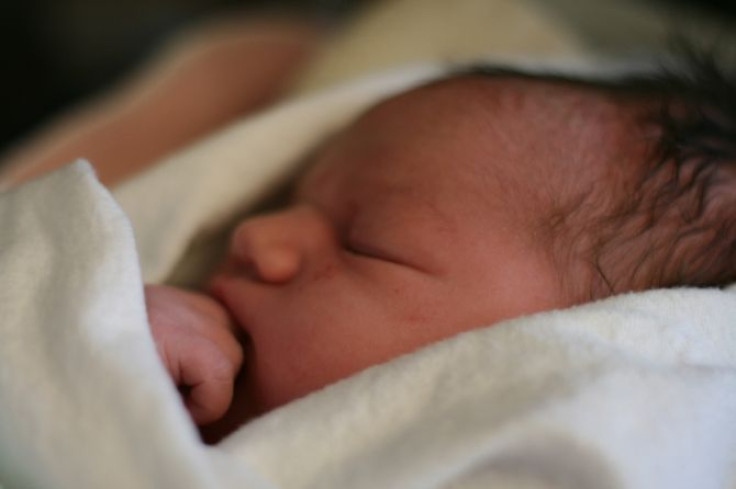Obese Mothers Risk Giving Birth to Babies With Low Iron Levels

A new study says that babies born to obese mothers have lower iron levels at birth which can result in slower motor skill development.
"The chronic low-grade inflammation that can result from being obese triggers an abnormal immune response, increasing production of proteins that increase hepcidin levels. Because iron plays a crucial role in the formation of the central nervous system, children born with iron deficiency are at a greater risk for delays in motor and cognitive development," said Maria Carlota Dao, first author and a doctoral student in the Nutritional Immunology Laboratory at the USDA Human Nutrition Research Center on Aging (HNRCA) at Tufts University.
For the study, researchers analyzed levels of hepcidin, a hormone that helps in keeping iron levels balanced in the body, in obese and normal weight mothers. Hepcidin levels are generally kept at low levels during pregnancy so that iron transfer from mother to infant happens easily.
"When there is excess hepcidin in a cell, it binds to and inhibits the function of ferroportin, the protein that allows iron to pass through the cell membrane and into the bloodstream," said Simin Nikbin Meydani, director of the Jean Mayer USDA HNRCA and senior author of the study.
The research included 15 obese pregnant women with body mass index (BMI) greater than 30 and 15 healthy weight pregnant women with BMIs between 20 and 25 were controls. Blood samples from the mothers were taken during the second trimester and the iron level of the newborn was measured in cord blood.
Researchers found that babies born to obese mothers with elevated hepcidin levels had low blood iron levels.
According to researchers, high levels of hepcidin might be the reason that babies have low blood iron levels. Obese people tend to have higher levels of hepcidin than normal weight people.
First author Sarbattama Sen said that earlier research on the subject has been done mostly on undernourished population. "Ours is the first study to demonstrate that obesity might hamper iron transfer from mother to child and offers some insight into the mechanism of how it occurs," Sen said," future studies, however, are needed to confirm the role of obesity associated with inflammation during pregnancy on hepcidin and iron status of the newborn." Sen is a neonatologist at Tufts Medical Center and an assistant professor of pediatrics at Tufts University School of Medicine.
Previous research suggests women should lose weight before they plan to get pregnant because even if a mother eats healthy during pregnancy, she will be raising the child in an unhealthy, obese environment.
"During pregnancy, women should try to eat a varied, healthy diet while taking the standard prenatal vitamins recommended by their doctors. Weight gain goals should be based on a woman's BMI prior to becoming pregnant. In 2009, the Institute of Medicine issued new guidelines on weight gain during pregnancy," Sen added
The study was published in the Journal of Perinatology.



























